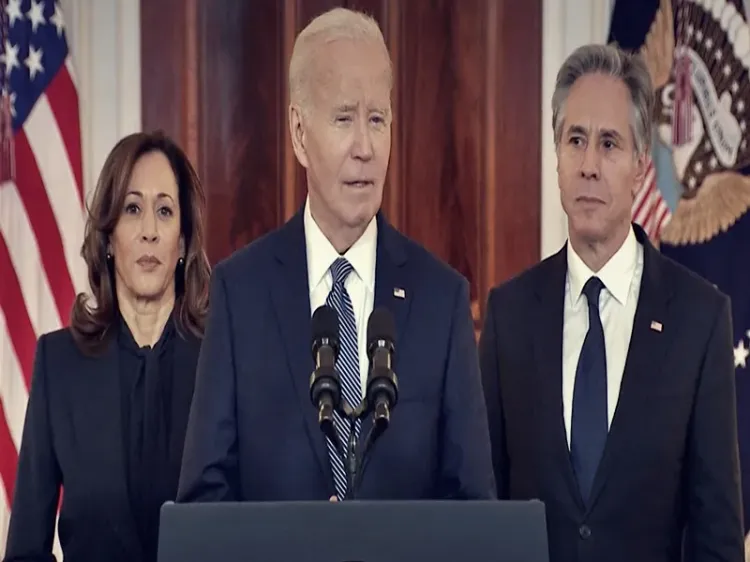Ceasefire Agreed: Israel and Hamas Set to Exchange Hostages

Synopsis
Key Takeaways
- Israel and Hamas have agreed to a ceasefire.
- Hostage exchange between the two sides is planned.
- Increased humanitarian aid will be provided to Gaza.
- Negotiations for a permanent peace are set for the future.
- Biden expressed satisfaction for both Israelis and Palestinians.
New Delhi, Jan 16 (NationPress) After more than a year of turmoil caused by the Gaza war, a significant agreement has been finalized between Israel and Hamas. Both parties have reportedly consented to halt hostilities and facilitate the exchange of Israeli hostages for Palestinian prisoners.
During a press briefing, US President Joe Biden confirmed this pivotal development, stating, "this is a very good afternoon now" and added, "Soon, the hostages will return home to their families."
The peace accord stipulates a comprehensive ceasefire, the withdrawal of Israeli military forces from Gaza, and the release of all hostages held by Hamas, as reported by the BBC.
Biden mentioned that in exchange, Israel would release Palestinian prisoners.
He further explained that in the initial phase of the ceasefire, "Palestinians can return home to their neighborhoods, and humanitarian aid in the Gaza Strip will be enhanced."
Biden also indicated that Israel and Hamas would engage in negotiations during phase two to establish a permanent resolution to the conflict.
He added, "If negotiations extend beyond six weeks, the ceasefire will persist," accompanied by Vice President Kamala Harris and Secretary of State Antony Blinken during the briefing.
Biden remarked that after 15 months of conflict, Hamas's senior leaders are deceased, thousands of its fighters have perished, and the group has been significantly weakened which led to their agreement on this deal, according to the BBC.
The President expressed his profound satisfaction that this day has arrived, both for the Israeli families enduring uncertainty and for those in Gaza who have faced "unimaginable devastation."
Biden noted, "Too many innocent lives have been lost."
He emphasized that with this agreement, "Palestinians can begin to rebuild, free from Hamas."
Furthermore, Biden mentioned that he and the transition team of President-elect Donald Trump collaborated as "one team" to achieve this ceasefire.






